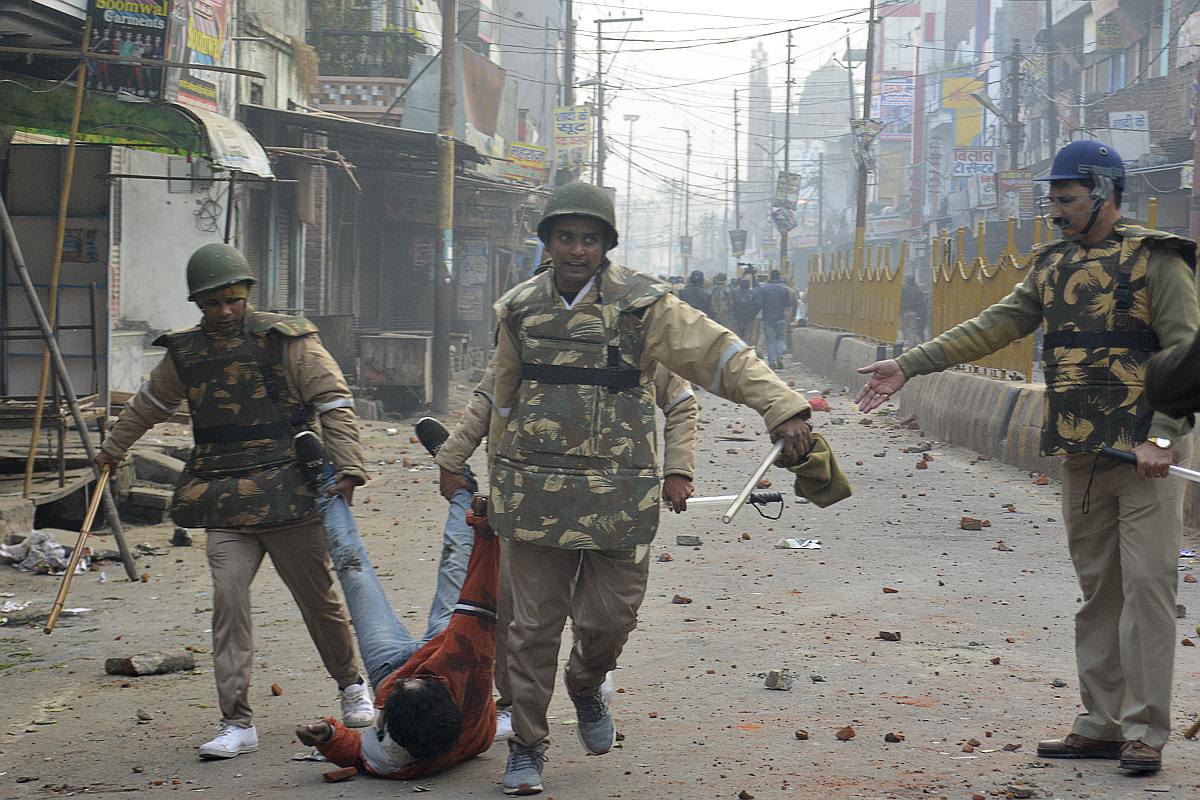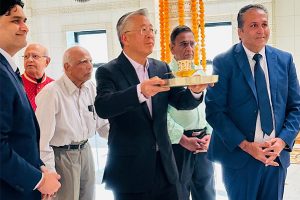All most all human beings are members of anyone of nearly 200 nation states located on this planet. And yetl there are many people in this world who have no nation to claim as their own. Citizenship in any country has eluded them and they are thus stateless. These ‘nowhere’ human beings lost their national identity or they were stripped of that. They were driven out of their land. Being a minority in a majoritarian state paves the way for their statelessness. Six lakh Rohingiya Muslims, evicted from Myanmar, fall in this category. The West African country, Côte d’Ivoire, is sheltering 7 lakh stateless people. It did not grant them citizenship. So these stateless Africans have no nation state.
The stateless or the ‘nowhere’ people are everywhere. They are in Europe, in Brazil, in many locations of the world. The citizenship law of a particular country can turn its people into non-citizens, notably illegal immigrants or infiltrators. Nearly 25 countries of the world deny citizenship to their children if their father had died or has been missing. Mothers in these countries are not granted the right to transfer citizenship to their off-springs. So the hapless child who lost his or her father will also miss the citizenship of her parent’s countries.
Obviously, the citizenship law in these countries do not consider one as a citizen eve nthough he or she was born in their land and was born to parents who are bonafide citizens of their countries. This is just unthinkable in a majority of countries where the first criterion for citizenship is birth in the geographical territory of the country whoever be the parents and their country of origin, for example in the US. There are 30 countries in the world w those follow this stance in US citizenship law. This policy is called Jus Suli which means birthright citizenship.
Any one, born in these countries, is automatically citizen of these countries. Interestingly, these Jus Suli countries are not all rich to accommodate any one in their homeland as citizen. Relatively poor countries like Tanzania, Jamaica, Pakistan, Guatemala, and Nicaragua are in the list along with USA, Canada, Argentina, Brazil etc. But this clause in their citizenship laws created problems in the rich nations endowed with abundant opportunities for growth like the USA and Canada. Married couples from poor countries would enter the USA or Canada.
They would give birth to a baby there and would come home with an American baby in their lap. This baby would grow as an American citizen. This ‘anchor baby’ opportunity for foreigners was opposed by a bigger section of Americans for a long time. America for Americans as a call was muted for long but this call reverberated with a bang when Donald Trump roared in his election speeches in the run-up to his presidential election. He pledged to end birth right citizenship in the USA. But like many of his electoral promises, this pledge is just jumla, a pointless promise.
Nation-states all over world laid out different citizenship laws that embodied their respective worldview and vision about the nation they propose to build. The first requirement for a nation to be born and stay alive is its people. People constituting a nation state are citizens. A nation cannot be born without its people whom we call nationals. So the vital question is who those people are, whom we call citizens. ‘People’ is a generic word meaning a member of human society or a social animal if we borrow from Aristotle. But citizenship is a legal provision in the statute book of any nation.
Citizenship lasw of any country defines the qualification to become a citizen of that country. So this law is country-specific, culture-specific and unique for each of them. A sovereign state can frame its own citizenship law without outside interference. India became sovereign in 1950. Its first Citizenship Act was passed in 1955. Several amendments were incorporated in later years. But this year’s amendment has almost unsettled the whole of India. It is triggering violent protests all over the country. Assam is boiling. Now India’s identity to the world as a secular nation is severely dented. India’s citizenship law, including its subsequent amendments, upheld the secular premise of our Constitution.
But this new Act which is named as Citizenship Amendment Act has dumped the fundamental spirit of the Idea of India on the sidewalk like trash. Gandhi’s India is giving way to Savarkar’s India. Now what did Savarkar think about citizenship in free India? He held the view and advocated that anyone can be a citizen whose holy land “Punya- Bhumi” is India. India is a land of Hindus. Sikhism, Buddhism and Jainism emerged out of the Hindu religion; so their followers are all natural citizens of free India. India, as their holy land, is their natural homeland. But Abrahamic religions ~ Islam, Christianity and Judaism ~ are out.
These religions were born in ancient Mesopotamia, not in India. So they are aliens in the Hindu Holy land. They can’t be naturalized in Hindu India. Adherents of Savarkar have framed this CAA. Interestingly, what we see here, in this controversial CAA, is twisting even of Savarkar’s plan, partial scrapping of his idea. Christians are welcome. Muslims are not. So why is this change in the saffron party’s stand about Christianity? Big brothers of the world are all Christians. They ought to be pleased. Judeo-Christian- Hindu trio, as a global project, might be in the minds of the makers of this law. Is India set to become a Hindu Pakistan or a Zionist Israel?
Makers of modern India led by Gandhi had a vision of Inclusive India. Gandhi rejected the ‘two-nation theory’ propounded by both Jinnah and Savarkar. Swami Vivekananda’s speech in America spelt out the essence of Hinduism and the idea of India. Hinduism accepts and appreciates all religions of the world including Islam. India, for thousands of years, has been sheltering all persecuted people of all religious denominations.
The Mahatma’s idea of India was largely shaped by Vivekananda’s deep understanding of India’s ancient civilization. Our Constitution incorporated this great idea. But now this idea is discarded. This CAA is a signal of rejection of the idea of India as melting pot. This pot is now ruptured. Disaster is lurking. We must now act together to hold up the pot.
(The writer is formerly visiting Fulbright Professor in the USA. He is presently Associate Professor, Ananda Chandra College, Jalpaiguri)











